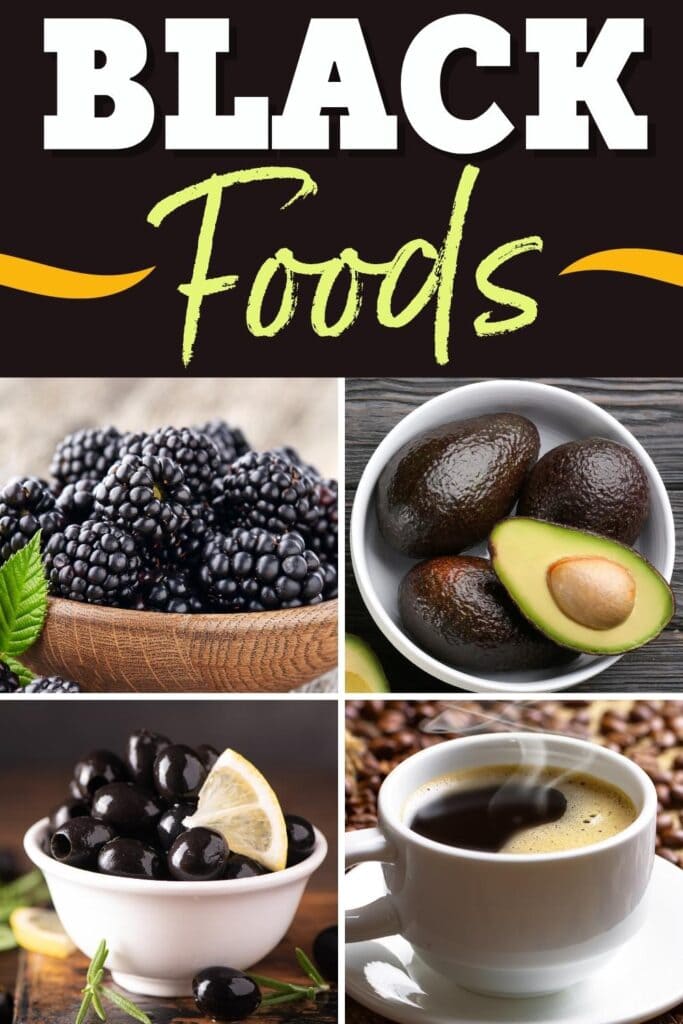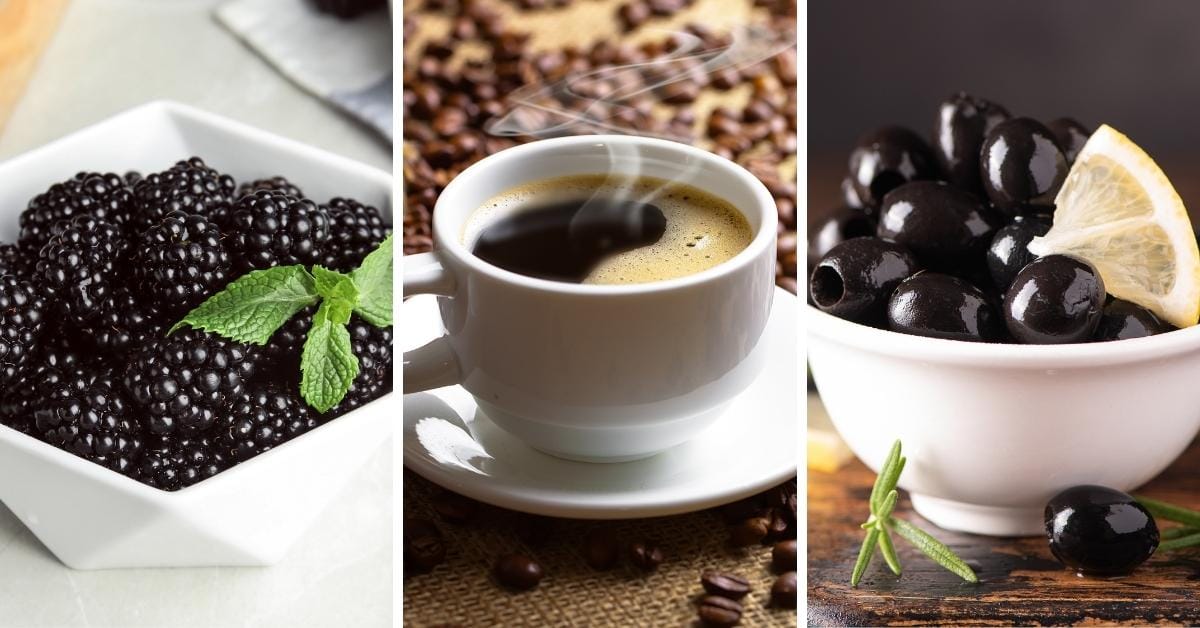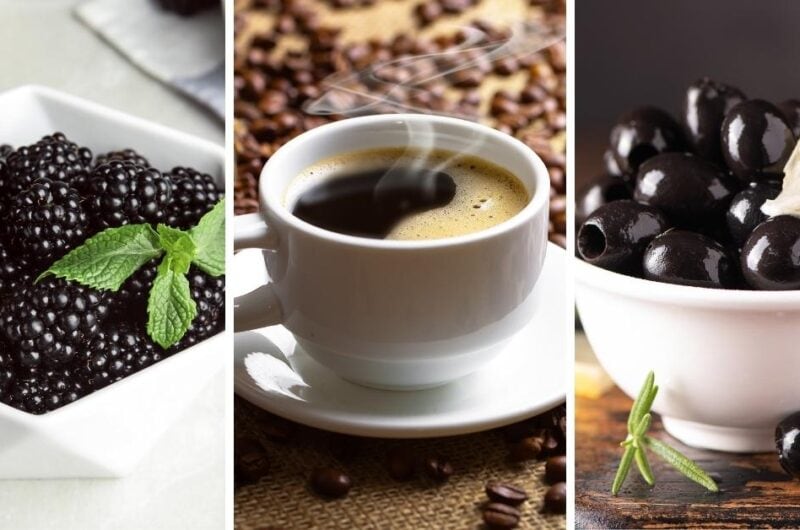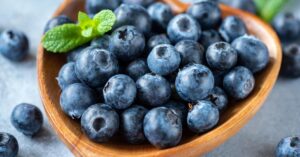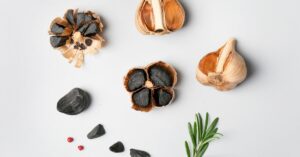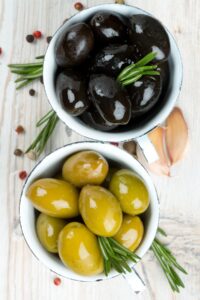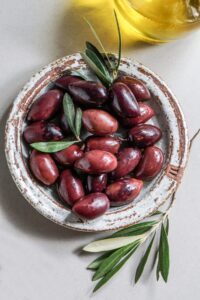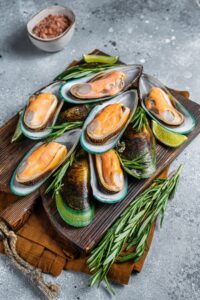There’s something about black foods that makes them so intriguing, isn’t there?
Maybe it’s because they seem a bit different from everything else. Or perhaps it’s their slightly mysterious nature.
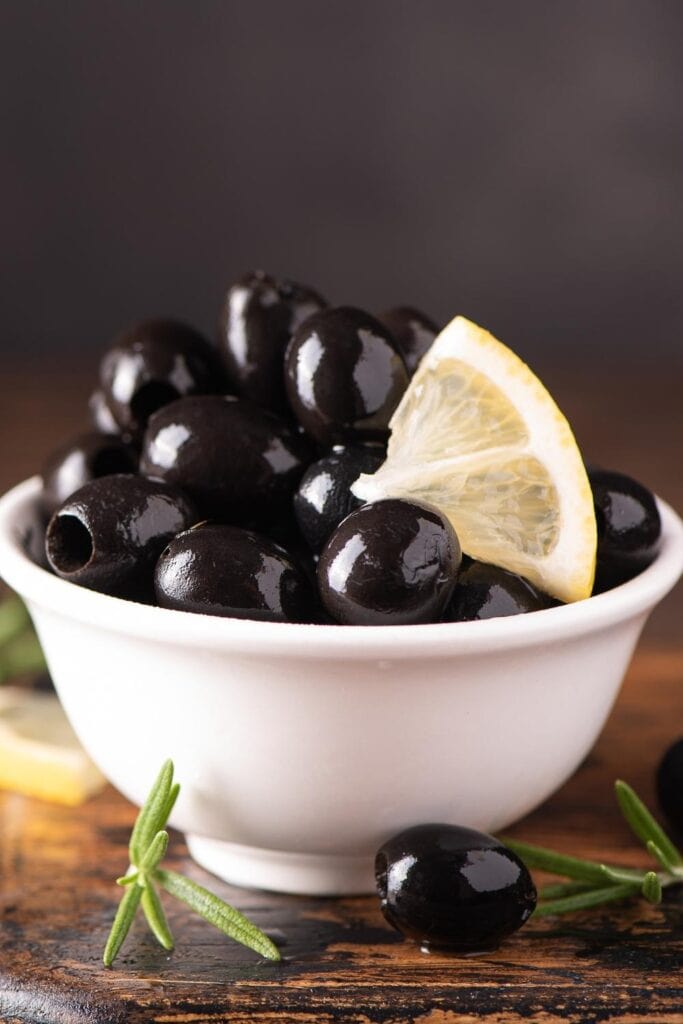
No matter the reason, black foods are definitely worth exploring. Let’s take a look at some of the best black foods out there.
From drinks to berries to seafood, I have you covered. So get ready to explore the world of black foods.
And maybe find a few things perfect for Halloween or Over-the-Hill parties, too!
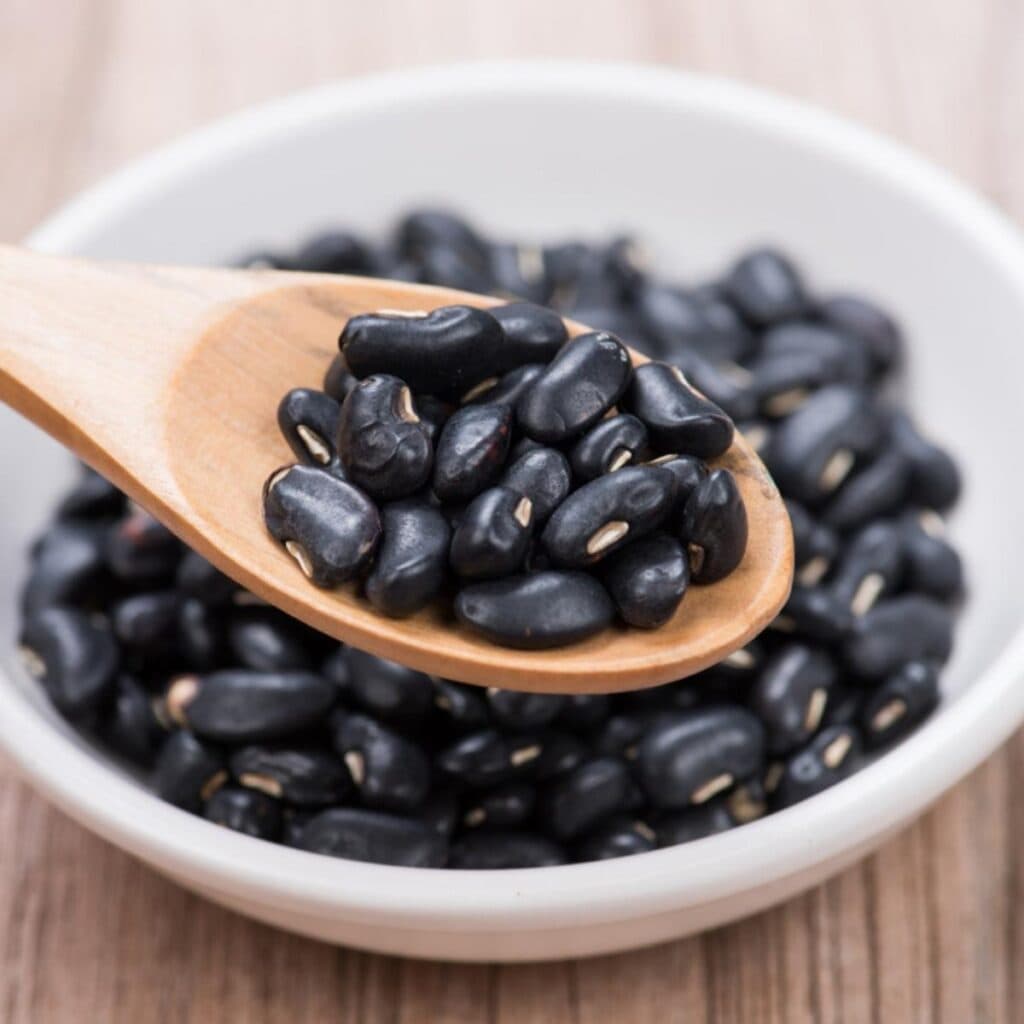
1. Black Beans
Black beans are a popular legume found in many Mexican, Latin, and Creole recipes.
Also known as turtle or black turtle beans, they have many health benefits.
They’re high in fiber and protein and can help strengthen your bones.
They’re also an excellent dish to eat if you have diabetes or high blood pressure.
They’re filling and easy to cook, making them a tremendously popular side dish in many homes.
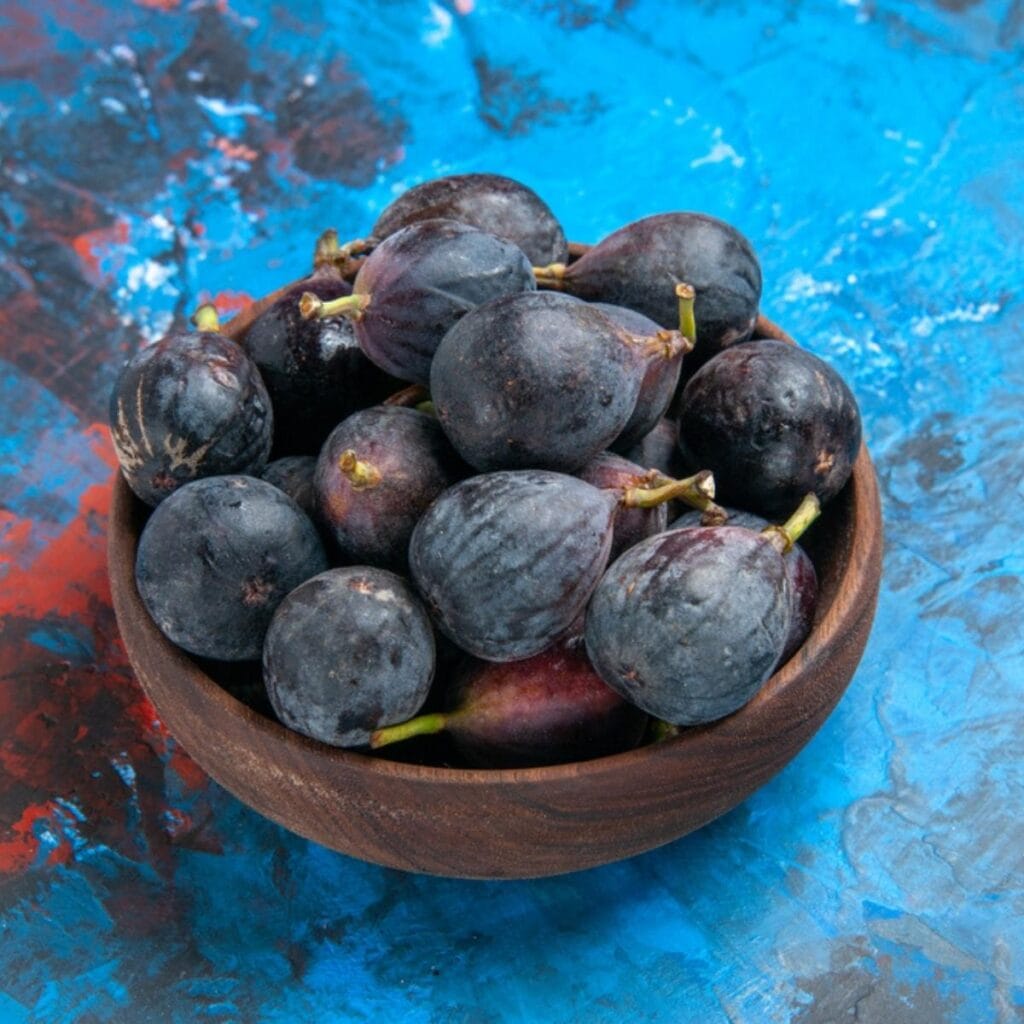
2. Black Mission Fig
Black mission figs are a large variety of figs with a teardrop-like shape.
They’re soft, squishy, and supremely sweet. You can enjoy them alone or as an ingredient in a larger recipe.
They’re high in fiber and have tons of vitamins and other nutrients.
Unfortunately, they’re also a bit high in carbs, so eat them in moderation.
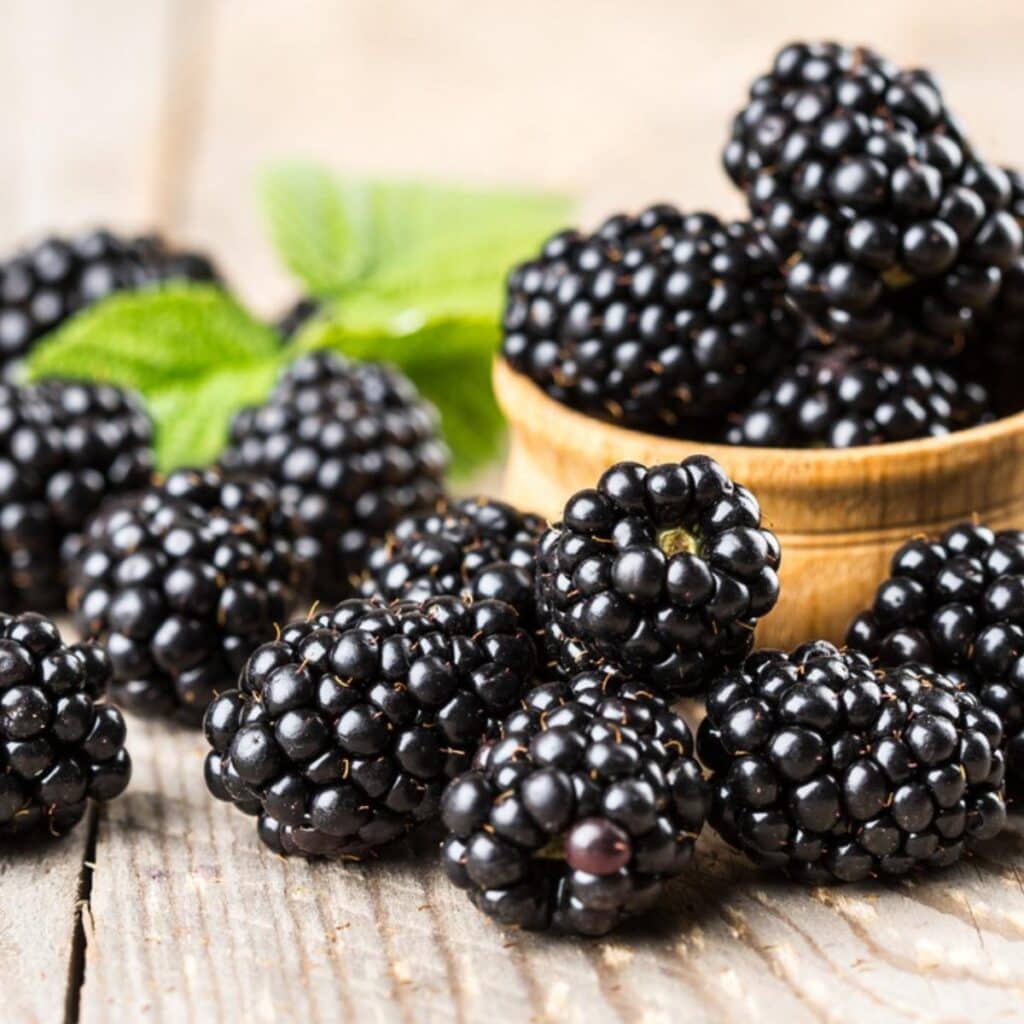
3. Blackberries
If you live in the U.S., you likely see blackberries in the supermarket year-round.
They’re an enormously popular berry, right up there with strawberries and blueberries.
They have a sweet, slightly tart taste with occasional bitter notes. Their appearance is odd and bubbly.
Their shiny, purple-black hue makes them very attractive, and they’re super juicy.
Besides eating them, people also use blackberries to make juice, jams, and jellies.
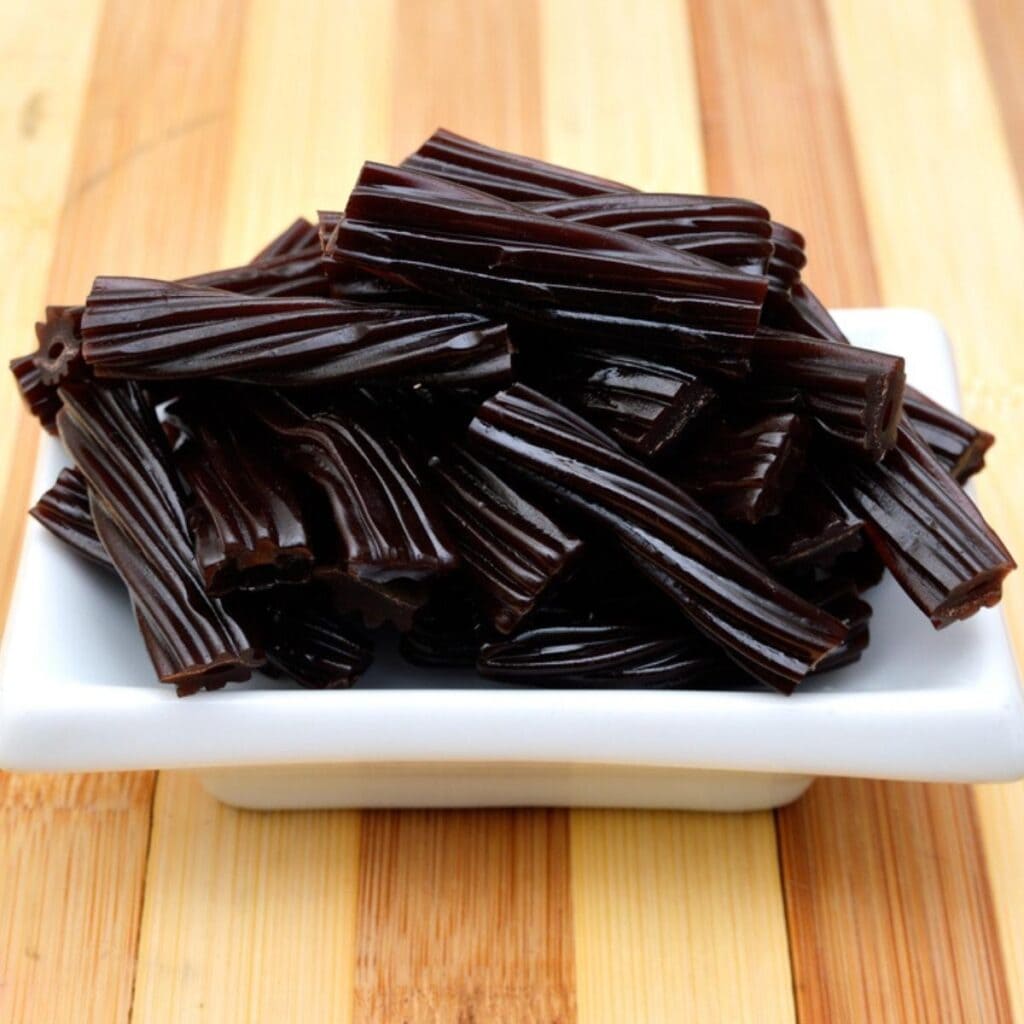
4. Black Licorice
Ah, good old black licorice. You either love it, or you hate it. Either way, though, I bet you know exactly what it is.
It’s an acquired taste. However, despite its divisive nature, almost everyone has heard of it.
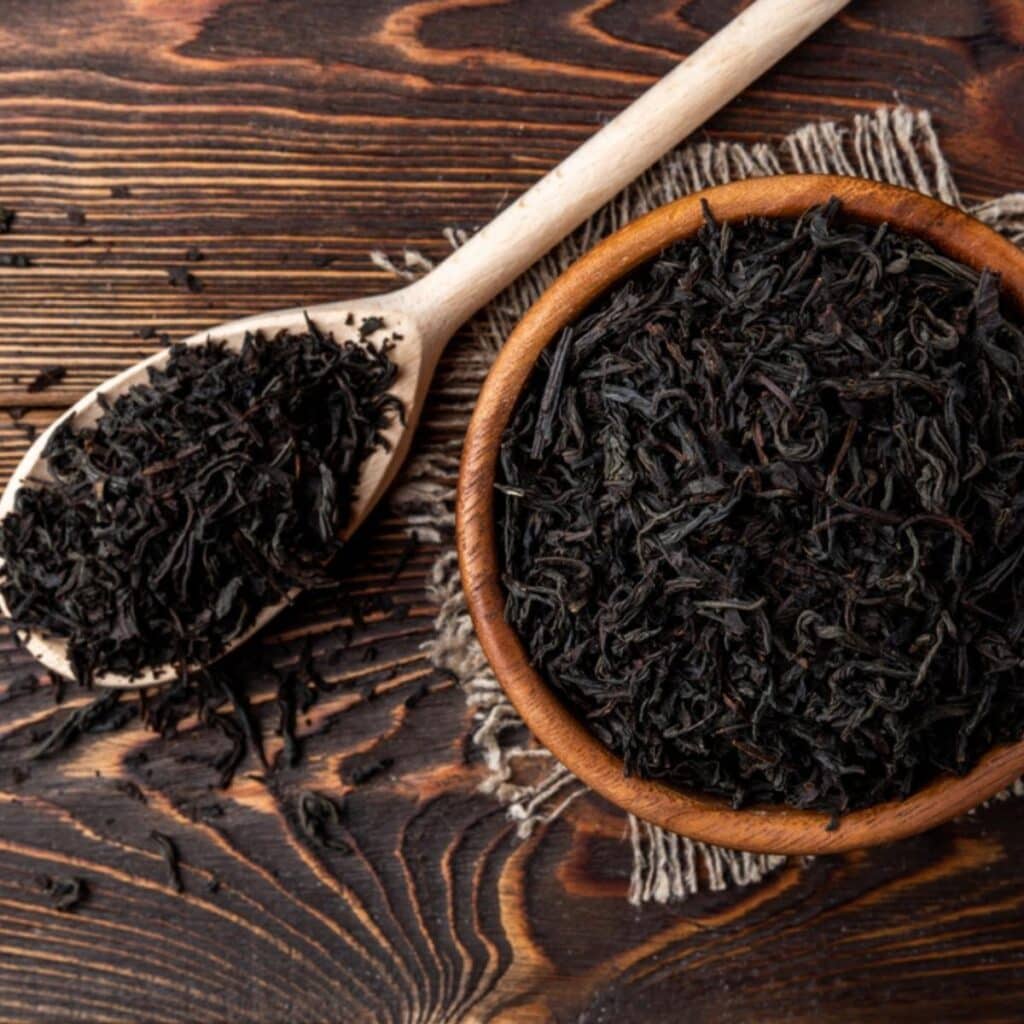
5. Black Tea
Although not everyone knows it by name, black tea is everywhere.
Every time you pour yourself a glass of Milo’s, you’re drinking black tea.
If you ask for sweet (or unsweet) tea at restaurants, typically, you’ll get black tea.
Black tea is the most commonly consumed tea in America, and most people have tried it.
It’s the strongest and darkest of teas. You can make it with or without sugar, caffeinated or decaffeinated.
You can even add other ingredients to adjust the flavor.
Whether you call it grandma’s tea or afternoon tea doesn’t matter.
You’re probably drinking black tea if it’s brown or reddish in color.
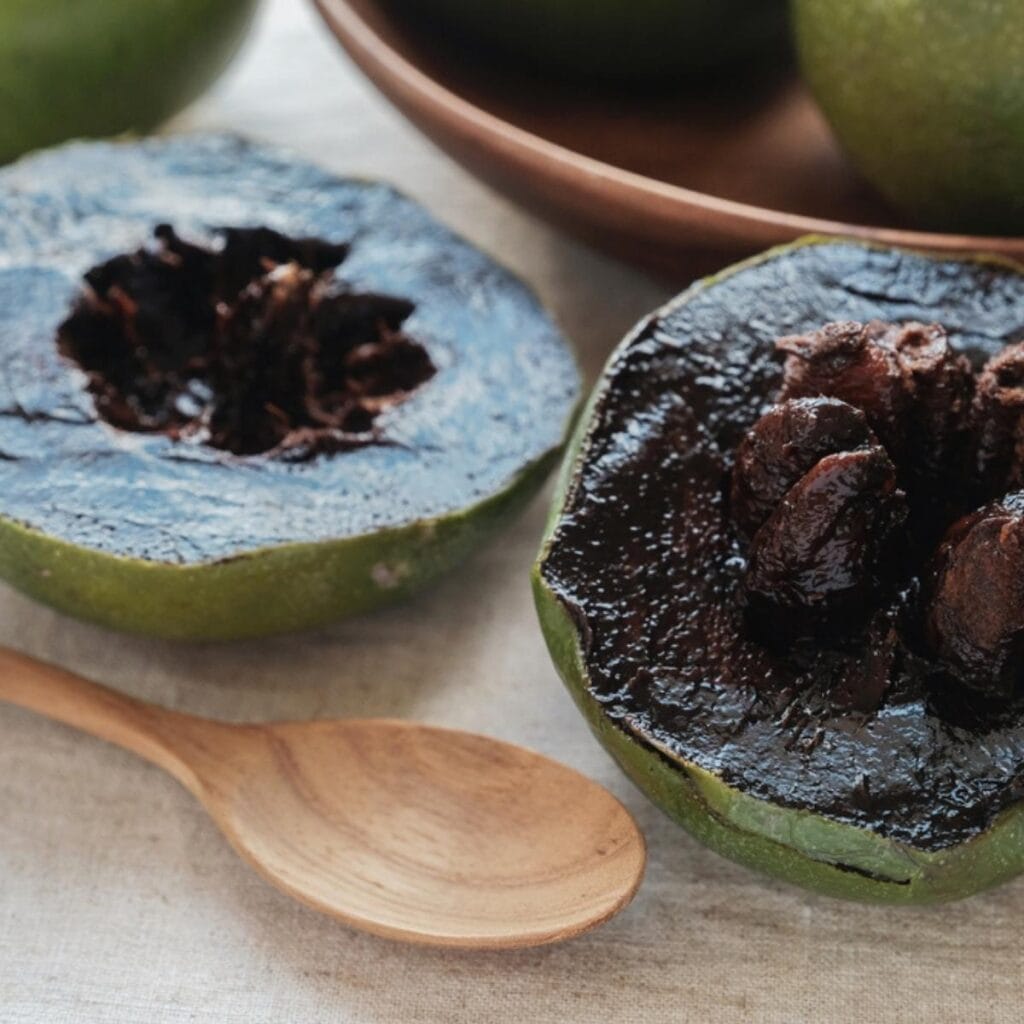
6. Black Sapote
The black sapote (pronounced ‘suh-powe-t’) is a strange-looking fruit.
It’s sweet and nutty with a pudding-like consistency that some say is an acquired taste.
The weirdest thing about it is that you must wait until it almost looks rotten before eating it.
When it’s nice, firm, and green, it’s not ready yet. Wait until it’s black and gross-looking.
That’s when the fruit is at its finest.
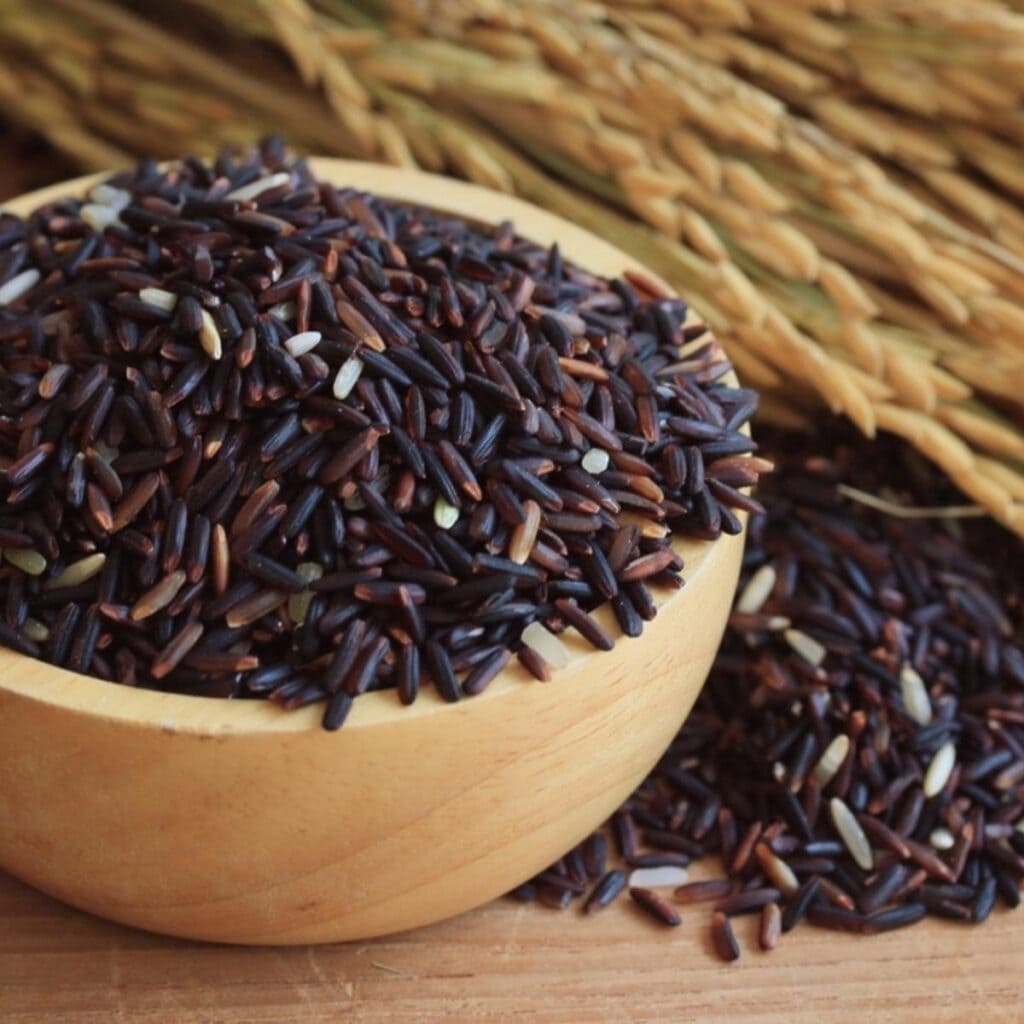
7. Black Rice
Have you ever cooked black rice? It’s a beautiful thing.
The deep purple-black color is stunning, and the flavor is complex and delicious.
Black rice is a nutritious grain perfect for home cooks, foodies, and amateur chefs. It’s easy to prepare and looks as good as it tastes.
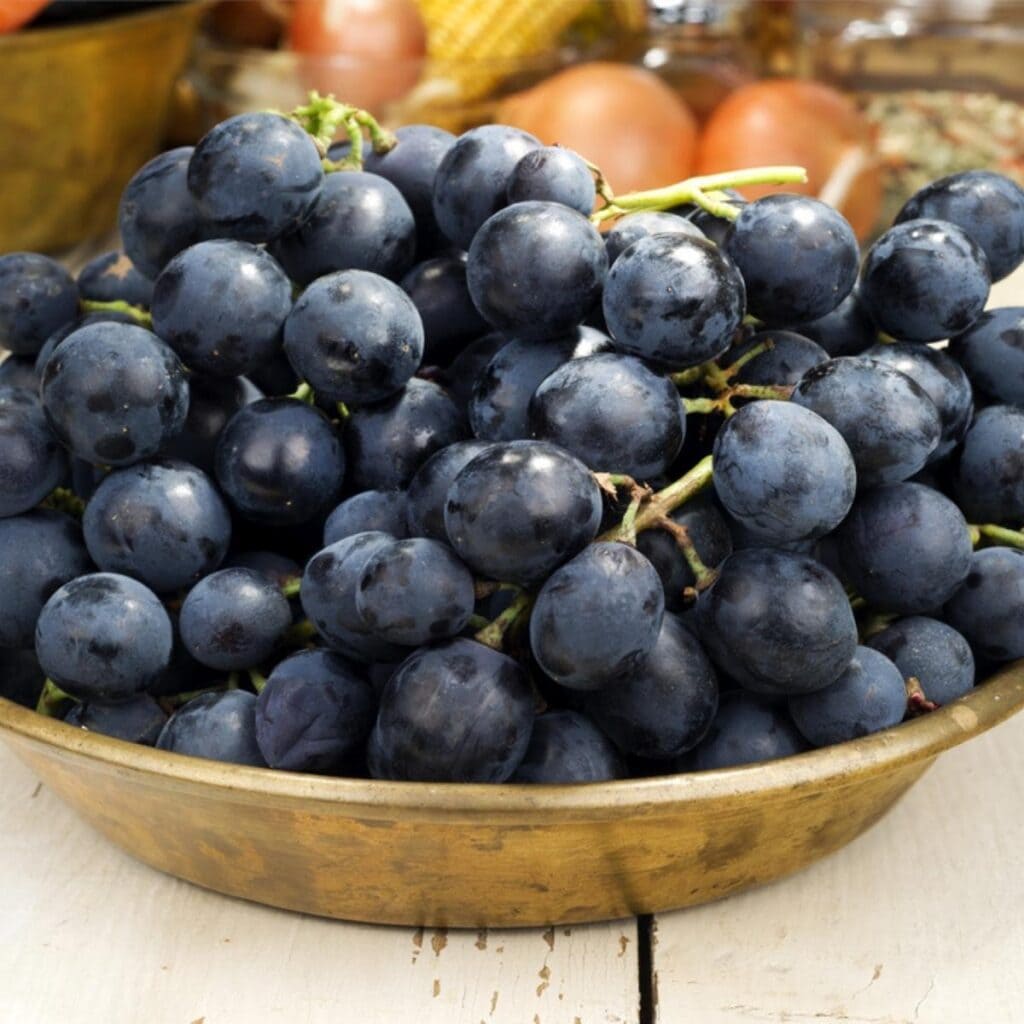
8. Black Grapes
You’ll love black grapes if you’re a fan of red wine. They have a juicy, fruity flavor that goes well with practically any dish.
Plus, they’re low in calories and high in antioxidants.
That makes them an excellent choice for dieters and health-conscious eaters.
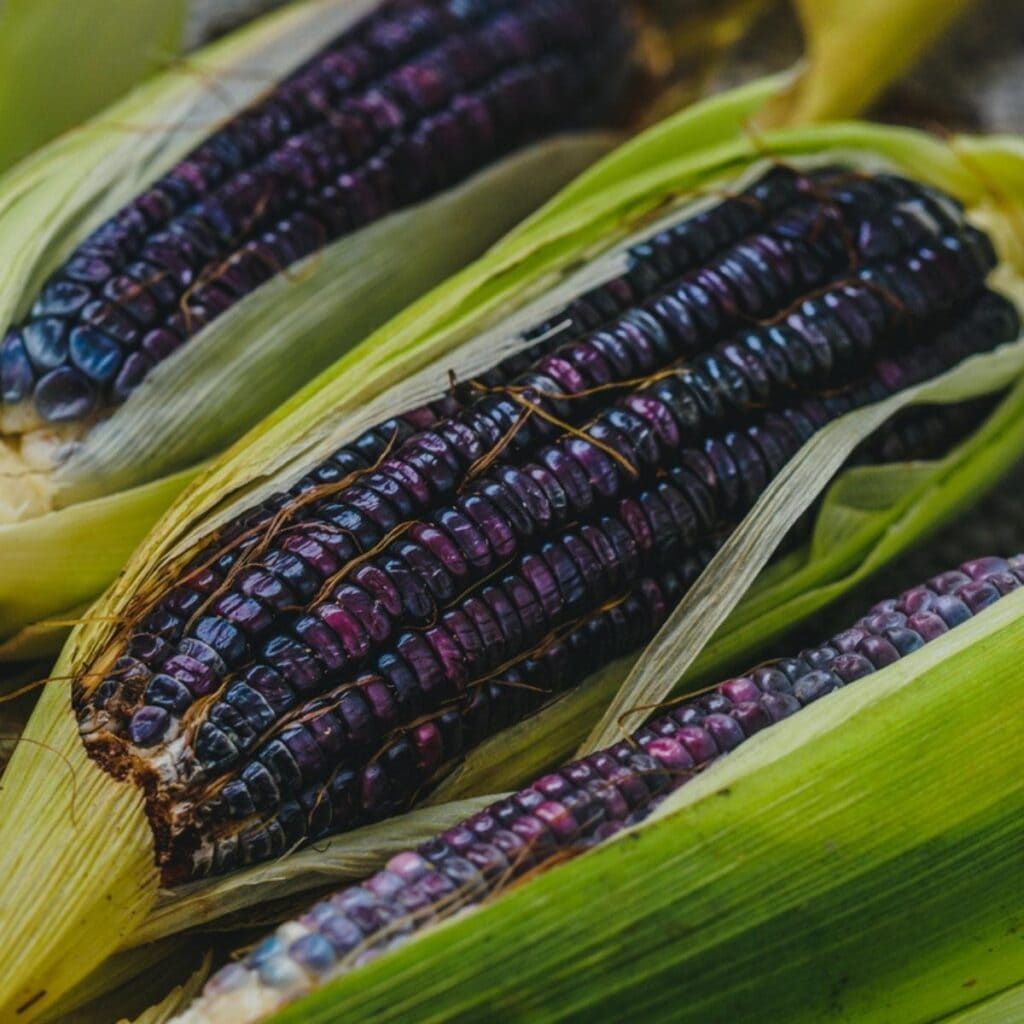
9. Black Corn
You know those black (or blue) tortilla chips you sometimes see at the store? Those come from black corn.
Black corn has a ton of different names. Fortunately, no matter what you call it, it has the same great taste. It’s starchy, sticky, soft, and chewy.
It’s sweet but not as sweet as traditional yellow corn. You can enjoy it alone or as part of a larger recipe.
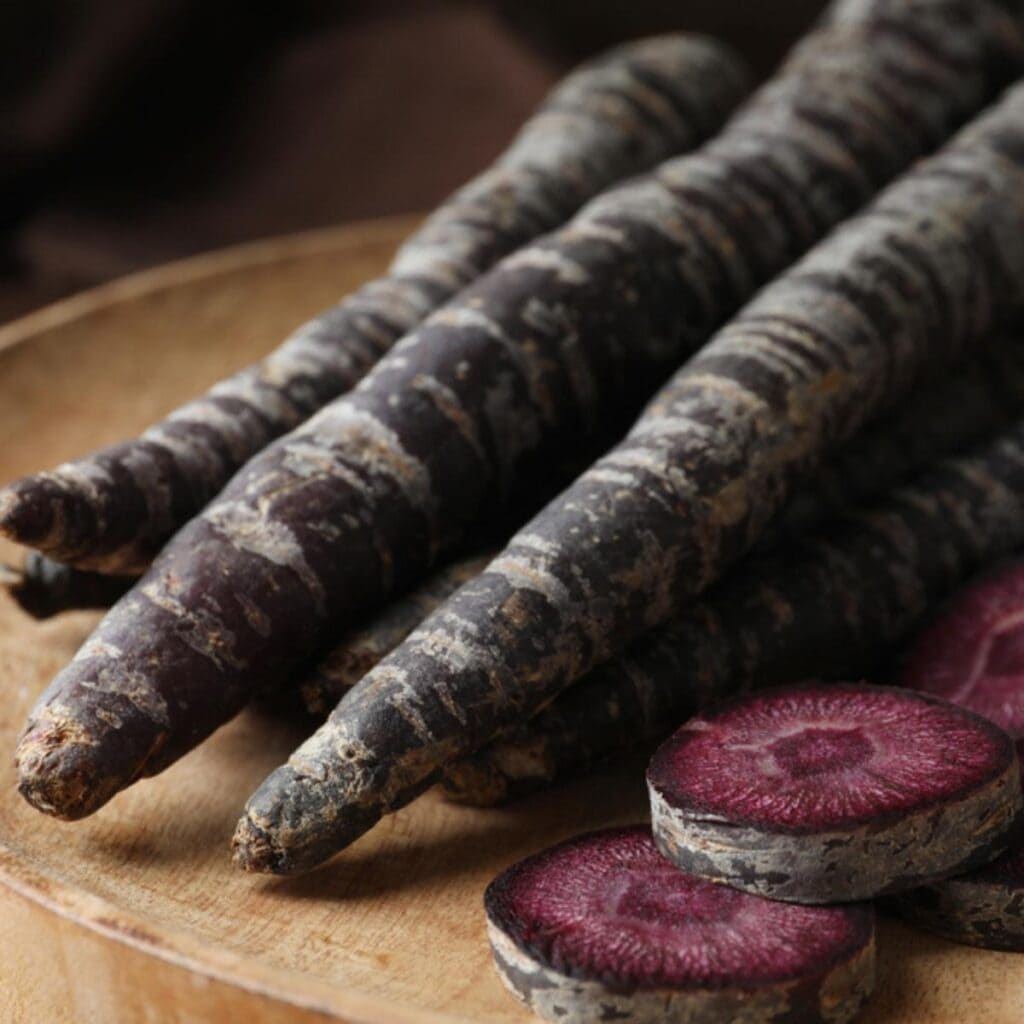
10. Black Carrots
There are a few varieties of black carrots, ranging in color from deep purple to pure black.
Some of them are black all the way through. Others have orange or pale centers instead.
All of them share a similar taste and crunchiness. The black ones just look a lot cooler.
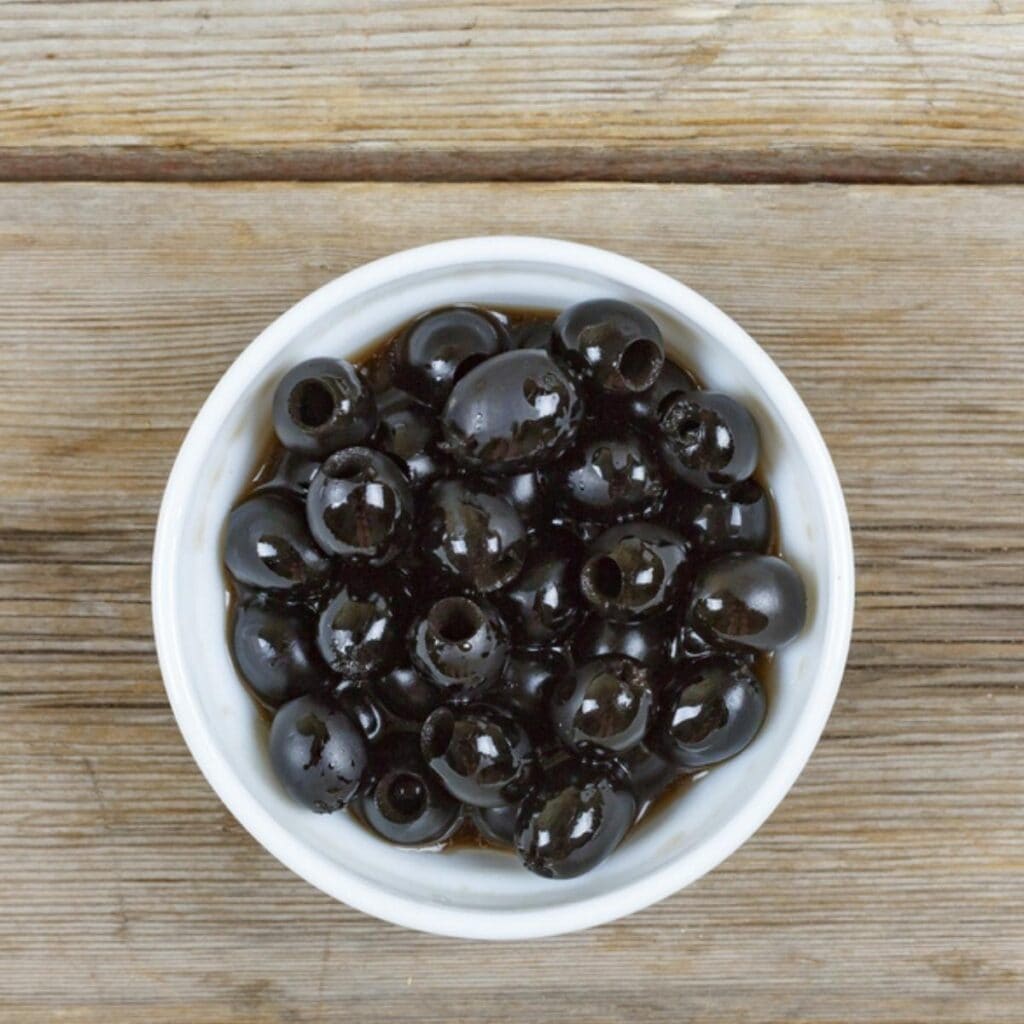
11. Black Olives
Black olives aren’t as rare as black carrots or black corn. In fact, you can find them in nearly every grocery store in the country.
They’re chewy, oblong-shaped, and wonderfully briny. Some people find them bitter.
Others, like me, think they’re delicious. They’re full of healthy fats and make a great low-carb snack.
(They also taste remarkable on top of pizza.)
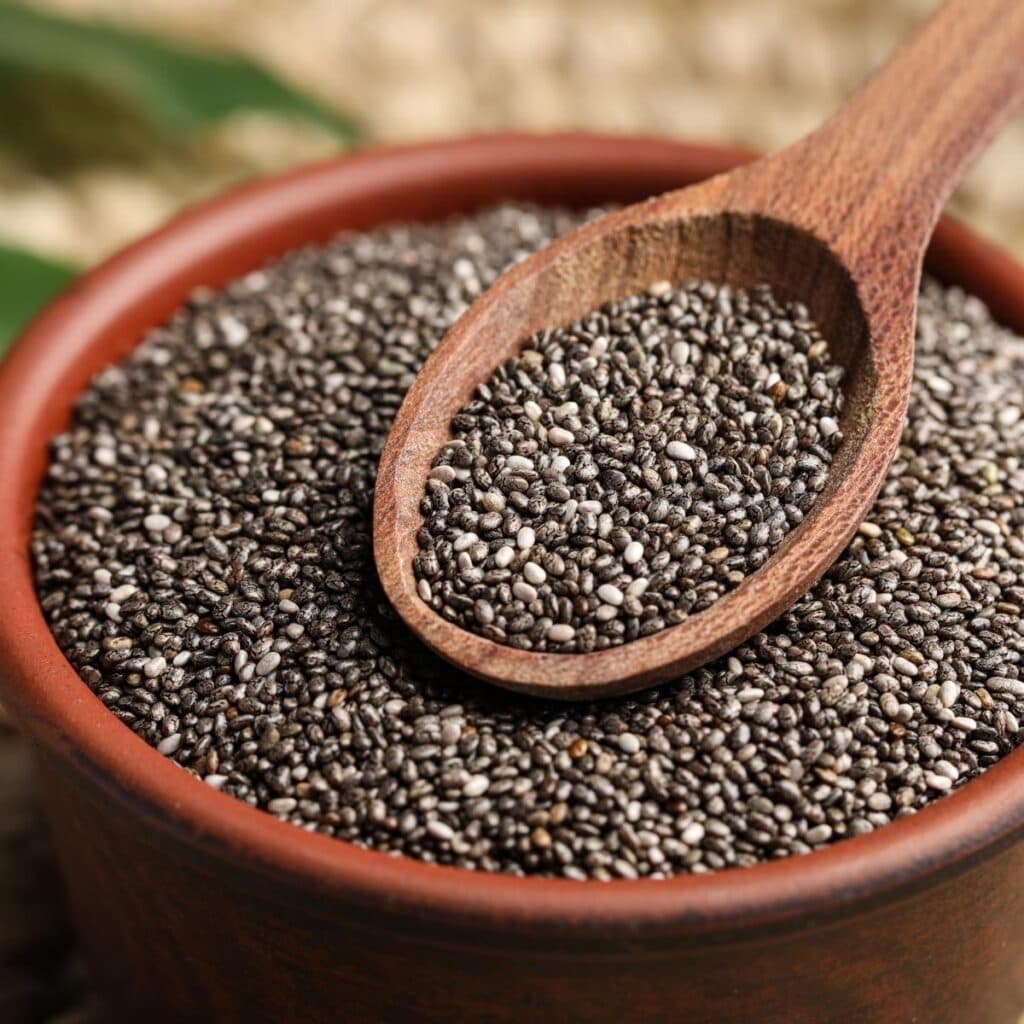
12. Chia Seeds
You probably notice something a little different about chia seeds, huh? In case you didn’t, I’ll tell you.
So far, they’re the only item on this list that didn’t start with the word black. (They won’t be the only ones, but there aren’t many!)
Chia seeds are a healthy, sustainable way to fuel your body.
The Mayans and Aztecs used them for centuries for their nutritional benefits.
They’re high in fiber, antioxidants, and omega-3 fatty acids.
Plus, you can work them into any recipe. Add them to drinks or food to boost the nutrient content.

13. Black Coffee
Black coffee is that magical, wonderful drink that makes the world go round. Without it, the universe might grind to a halt.
Okay, probably not.
But we all know what black coffee is. Whether we drink it or not, coffee needs no introduction.
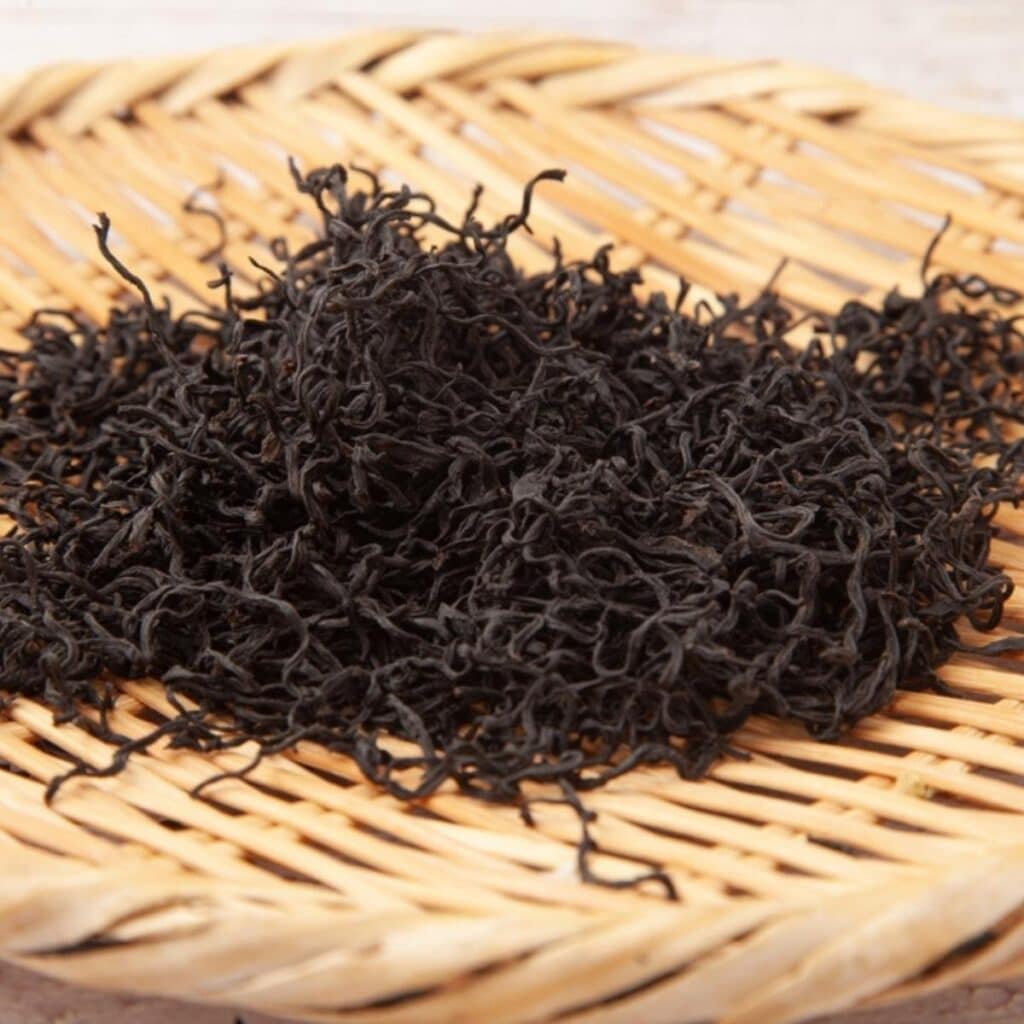
14. Black Seaweed
If you’re a fan of sushi, you’ve probably had black seaweed before.
It’s a type of algae often used in Japanese cooking for its salty flavor and chewy texture.
Surprisingly, you can also use it as a natural thickener or to add nutritional value to food!
You can even purchase black seaweed pearls. They’re a vegan alternative to caviar and have a similar texture to tapioca pearls.
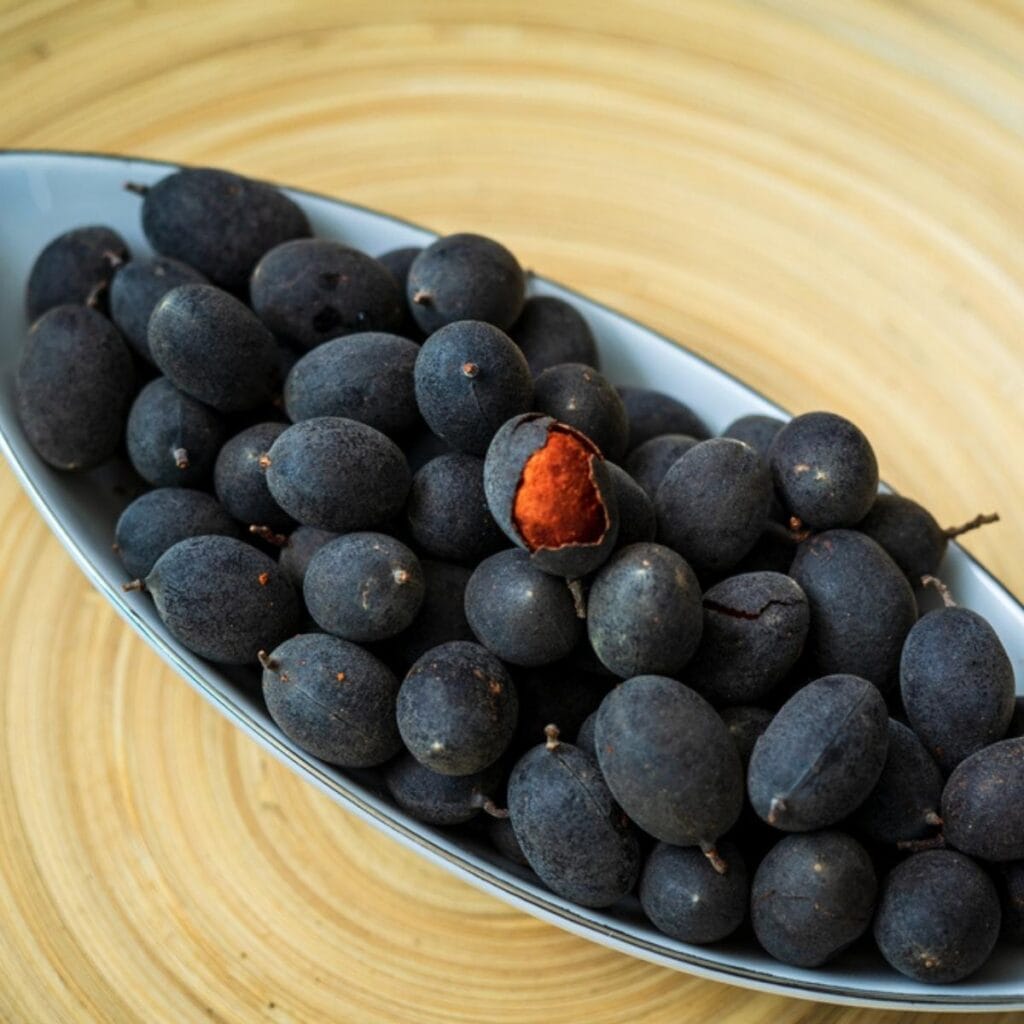
15. Black Velvet Tamarind
Black velvet tamarind is a sweet and sour fruit often used in Indian and Thai cuisine.
It has a unique flavor that can be difficult to describe. However, it’s definitely worth trying if you’re looking for something new!
It’s not yet common in the U.S, but you can sometimes find it in Asian markets.
It’s small and looks like a cross between an olive and a nut. You peel the shell to eat it, which can be messy.
Still, it has tons of health benefits and tastes great. If you haven’t tried it yet, there’s no time like the present.
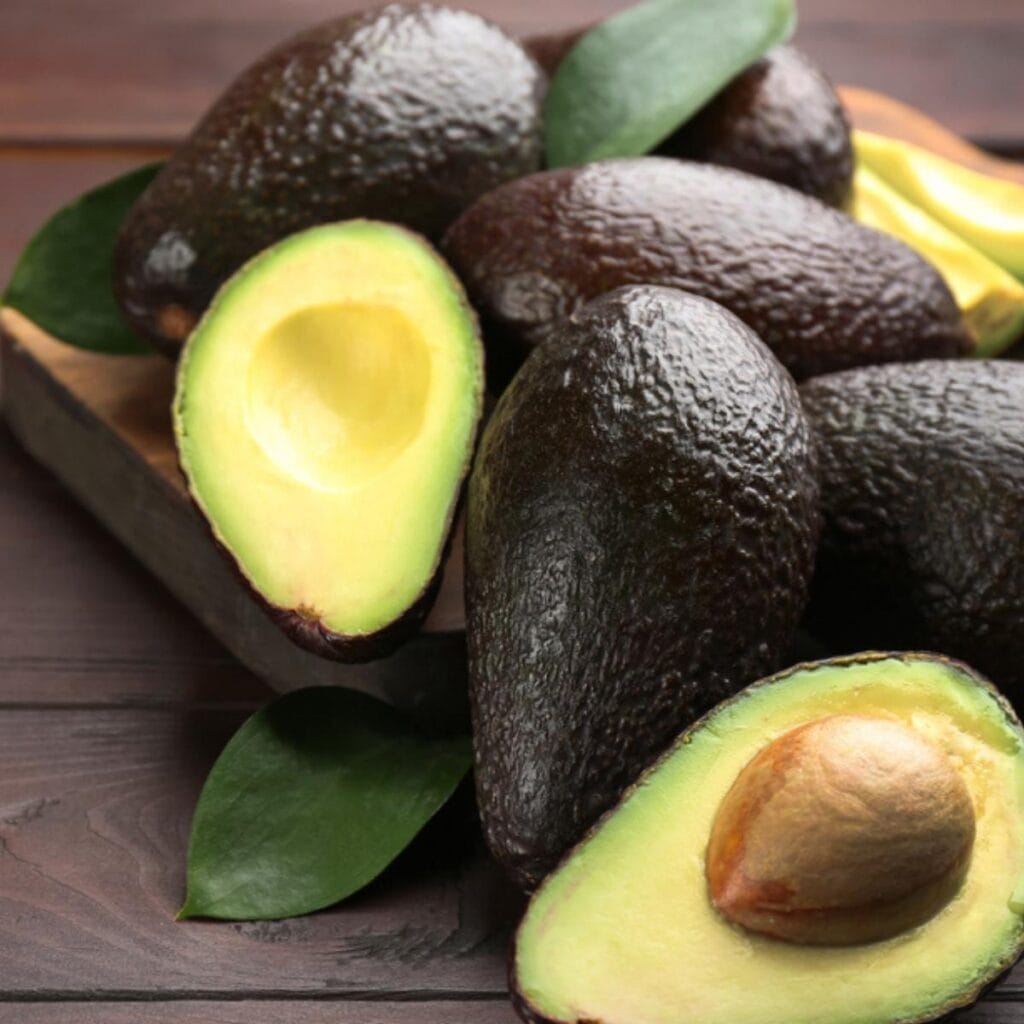
16. Hass Avocados
Have you ever seen an egg-shaped avocado so dark green that it looks black? It was probably a Hass avocado.
Their bumpy, green-black skin hides a rich, creamy interior.
These avocados are some of the tastiest and have the most fantastic texture.
If you’re an avocado lover, these are the ones you want.
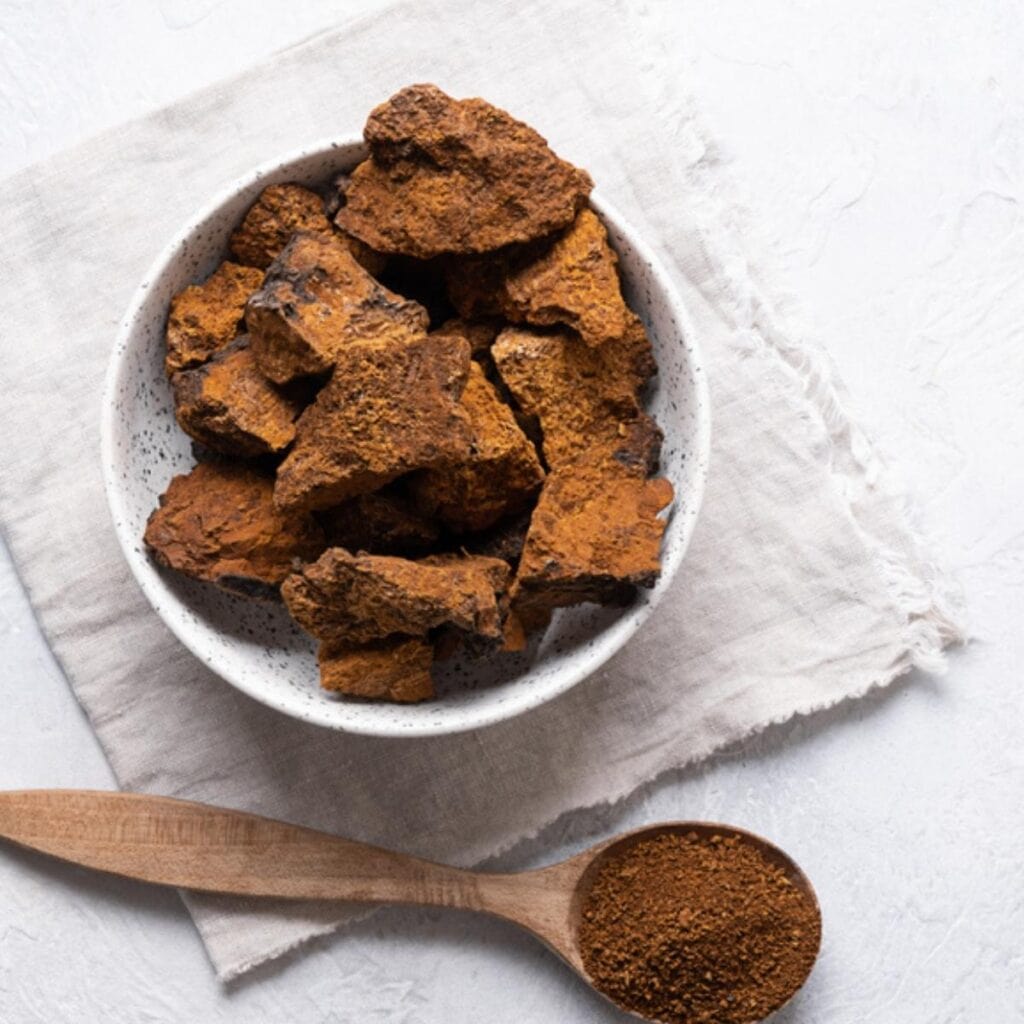
17. Chaga Mushroom
Chaga mushrooms are unique. Some people even say they are the weirdest-looking mushrooms around.
Honestly, they look more like a nasty fungus than a mushroom.
Don’t let their unusual appearance fool you, though.
Chaga mushrooms are loaded with antioxidants and other beneficial compounds. They’re a great addition to your diet.
Most people grind them up and drink them as hot tea. It’s pretty tasty, too. Give it a try if you haven’t already.
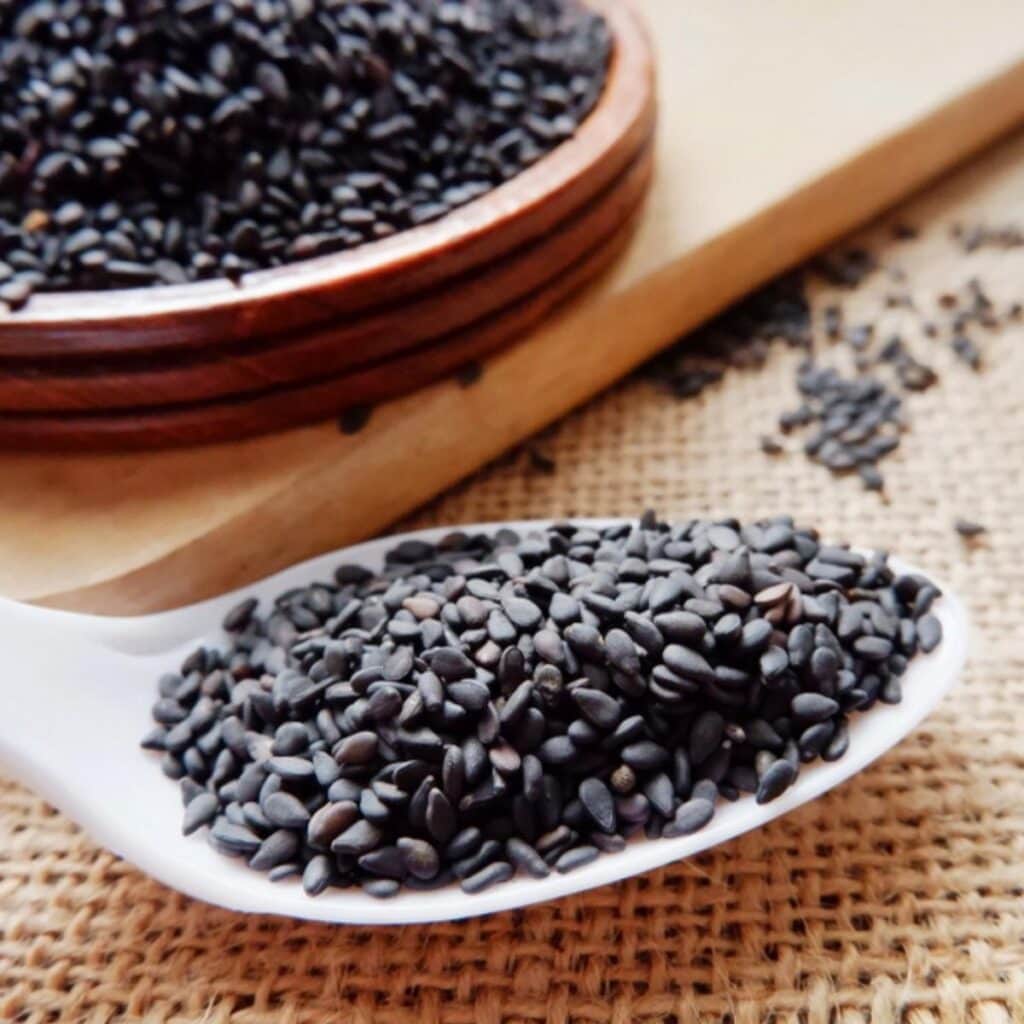
18. Black Sesame Seeds
Most everyone is familiar with little white sesame seeds. They’re frequently on top of buns and many Asian dishes.
However, many people don’t realize that black sesame seeds are also a thing. And they’re healthier than their white counterparts.
(Like white and brown rice, black sesame seeds retain their hulls.)
They contain far more nutrients than their white cousins. They’re also crunchier and have a more robust, bolder flavor.
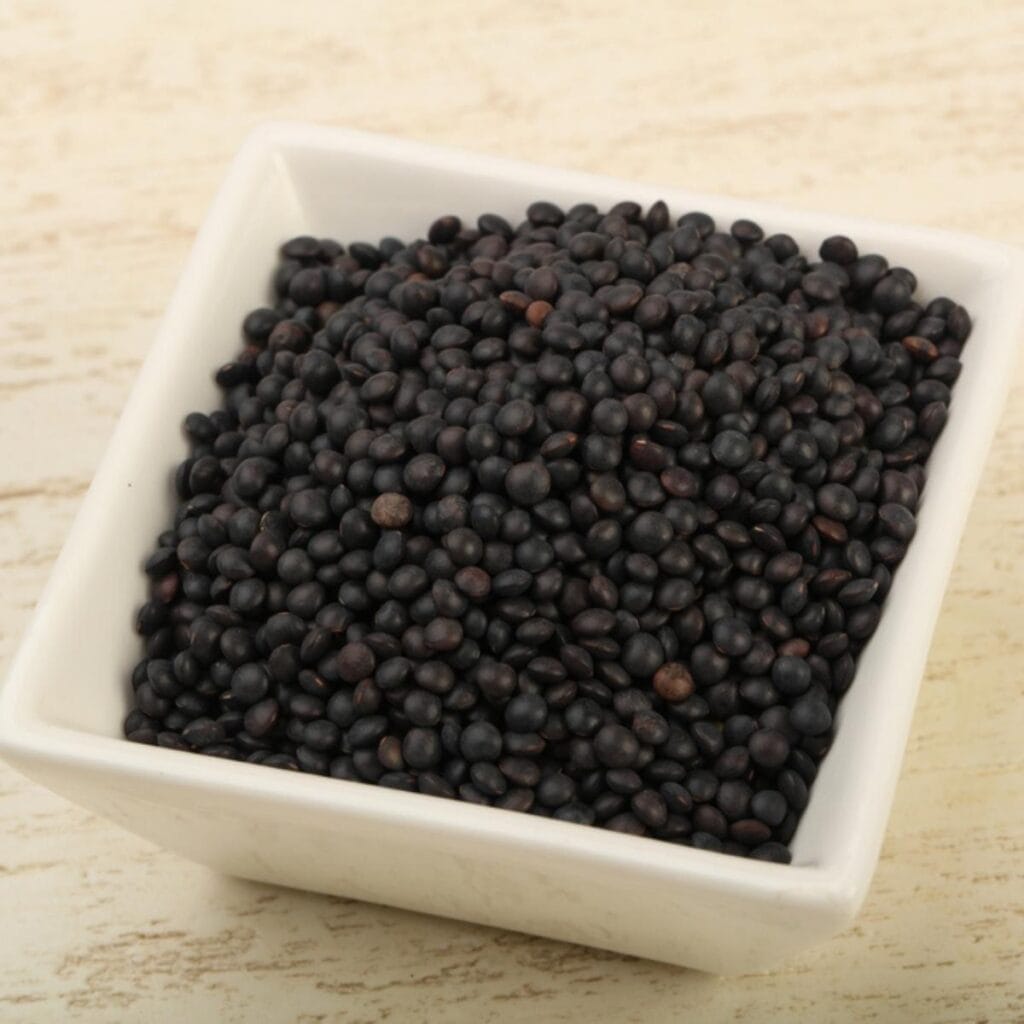
19. Black Lentils
Lentils are a great choice for a healthy, filling meal.
There are many different types of lentils, but one of the most unique is black lentils.
They have a deep, earthy flavor and a slightly chewy texture. They’re perfect for stews, soups, and curries and make a delicious side dish.
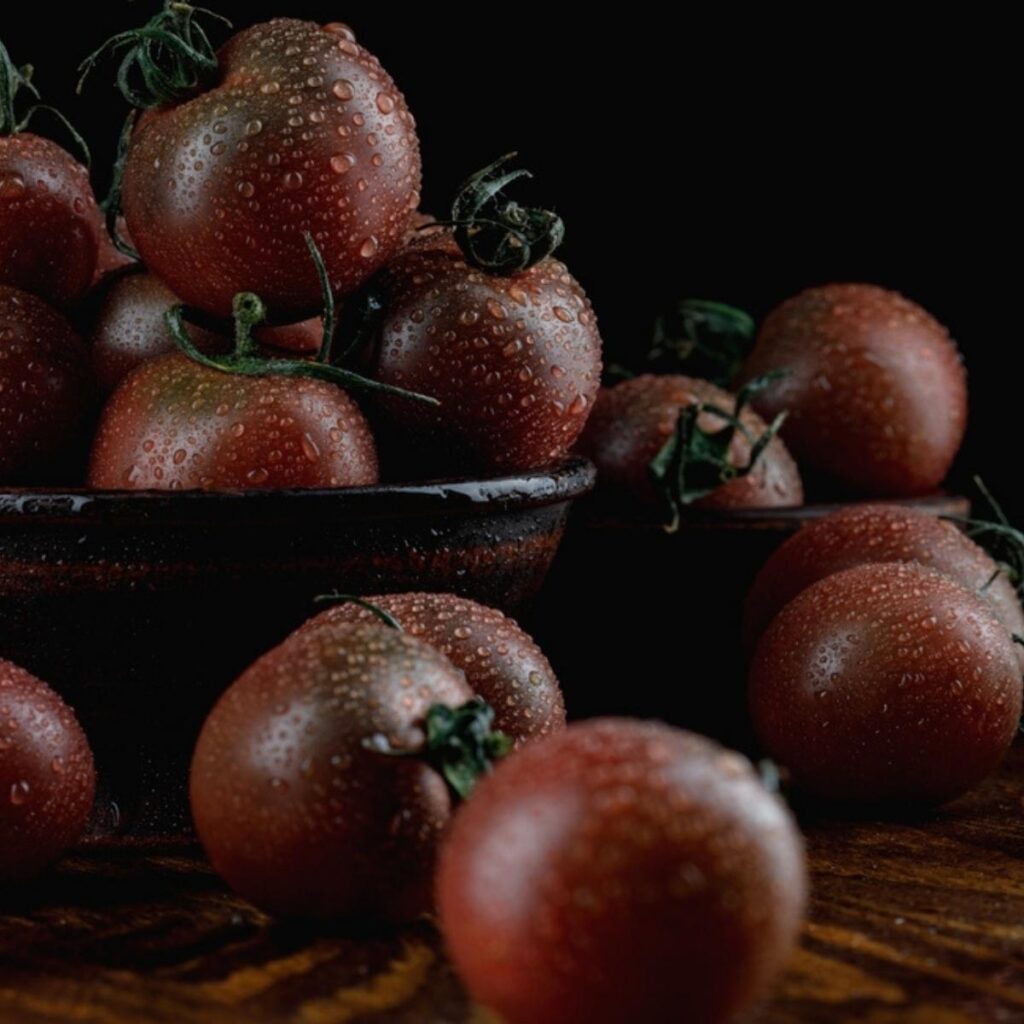
20. Black Tomatoes
Sometimes called blue tomatoes, black tomatoes are the stuff.
Usually, when we talk about black tomatoes, we’re talking about Black Beauties.
These tomatoes range in hue from deep burgundy to jet black. They’re also shiny, like they’ve been polished.
Their insides are reddish-pink with black edges.
However, other black (or at least dark) tomatoes exist.
These include Black Mambas, Velvet Nights, Black Cherries, and Black Krims.
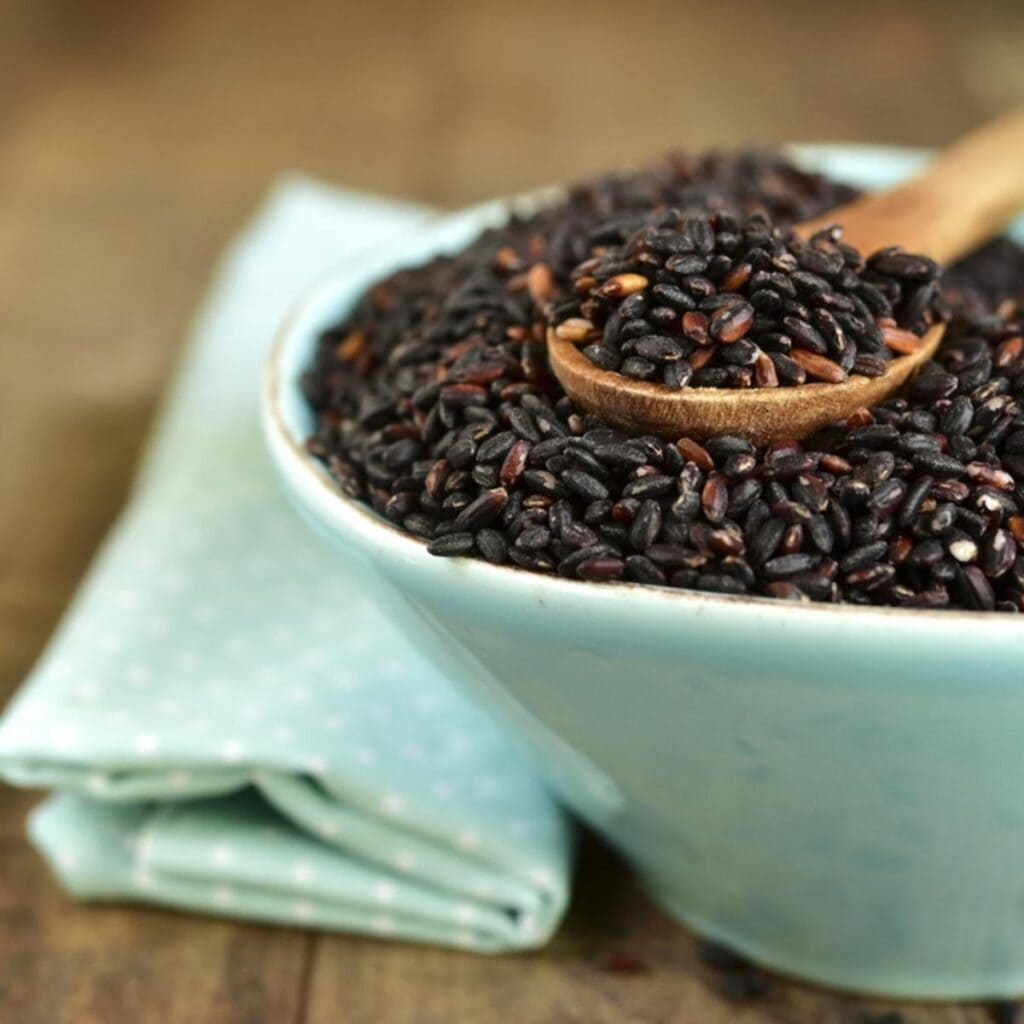
21. Black Wheat
Black wheat is a more nutritious option than yellow wheat.
It comes from crossing blue and purple wheat strands and tastes like regular wheat.
It’s good for those with diabetes and can be used in all the ways wheat can.
Its black color comes from the anthocyanin pigment.
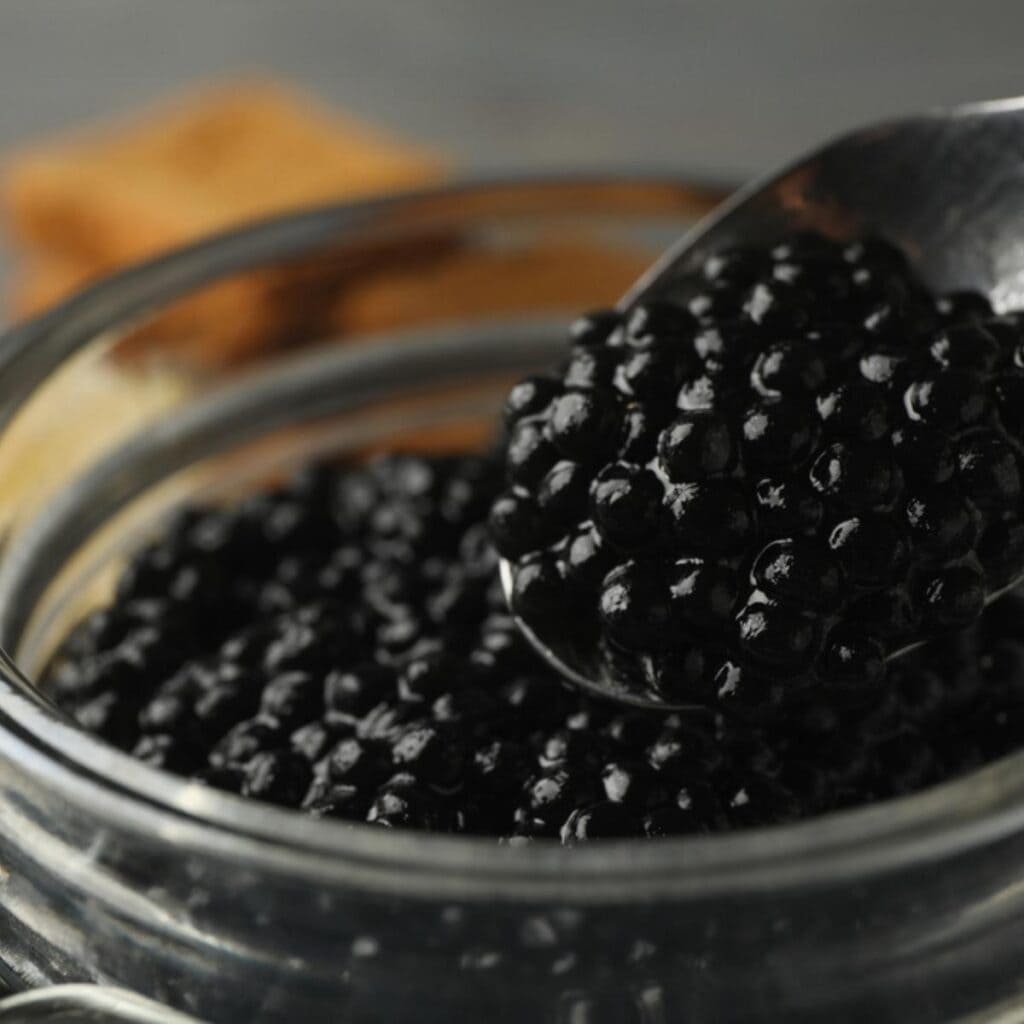
22. Black Caviar
Black caviar is caviar typically made from sturgeon eggs. It’s a somewhat expensive delicacy that people either love or hate.
Other types of caviar are black. However, the caviar most people call ‘black caviar’ is the sturgeon variety.
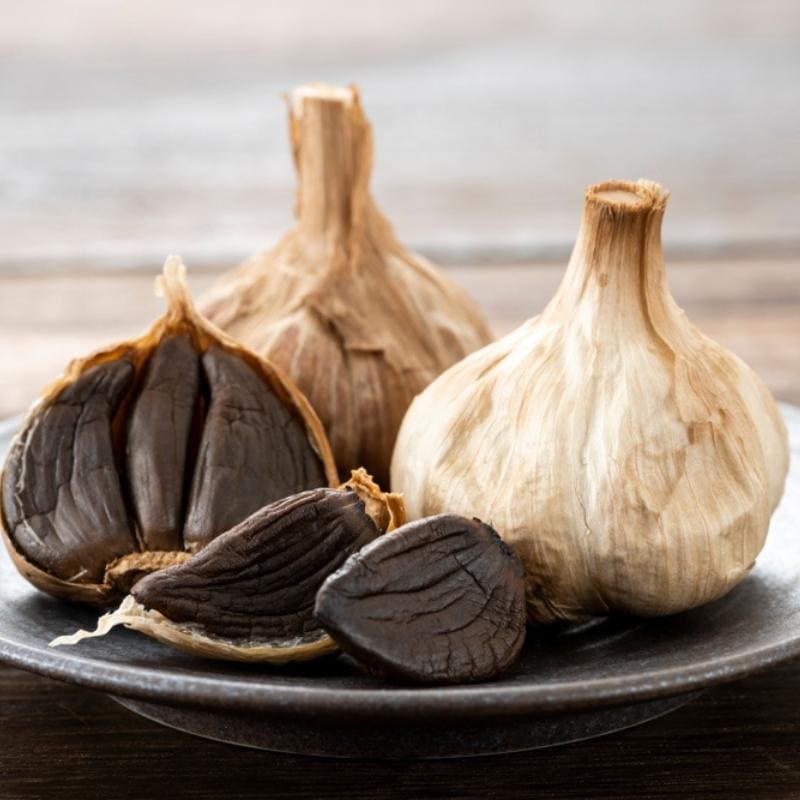
23. Black Garlic
Are you a garlic fanatic like me? If so, you must try black garlic.
Basically, it’s regular garlic that’s been left to age until the bulbs turn black.
It removes some of the garlic’s pungency, giving it a sweeter, richer flavor. (Some people compare it to molasses.)
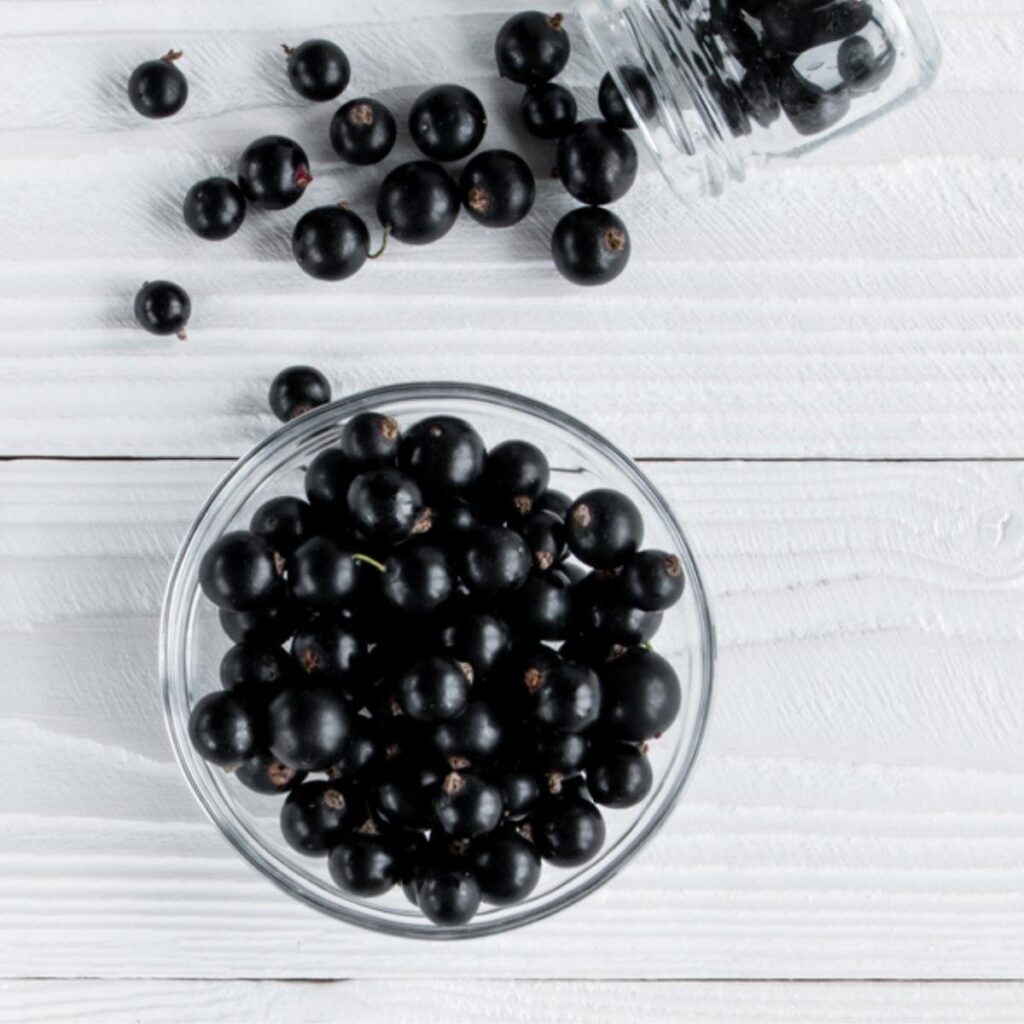
24. Black Currant
Sometimes written as blackcurrant, black currants are berries.
They’re approximately the same size and shape as blueberries. Of course, they’re black instead of blue.
They’re healthy, immune-boosting berries.
However, they also carry a fungus that infects white pines, making them not so well-loved in the U.S.
They thrive in Europe, however. Despite the dangers to the ecosystem, they’re becoming more popular in America., too.
They’ll likely retain their ‘forbidden fruit’ moniker for some time, though.
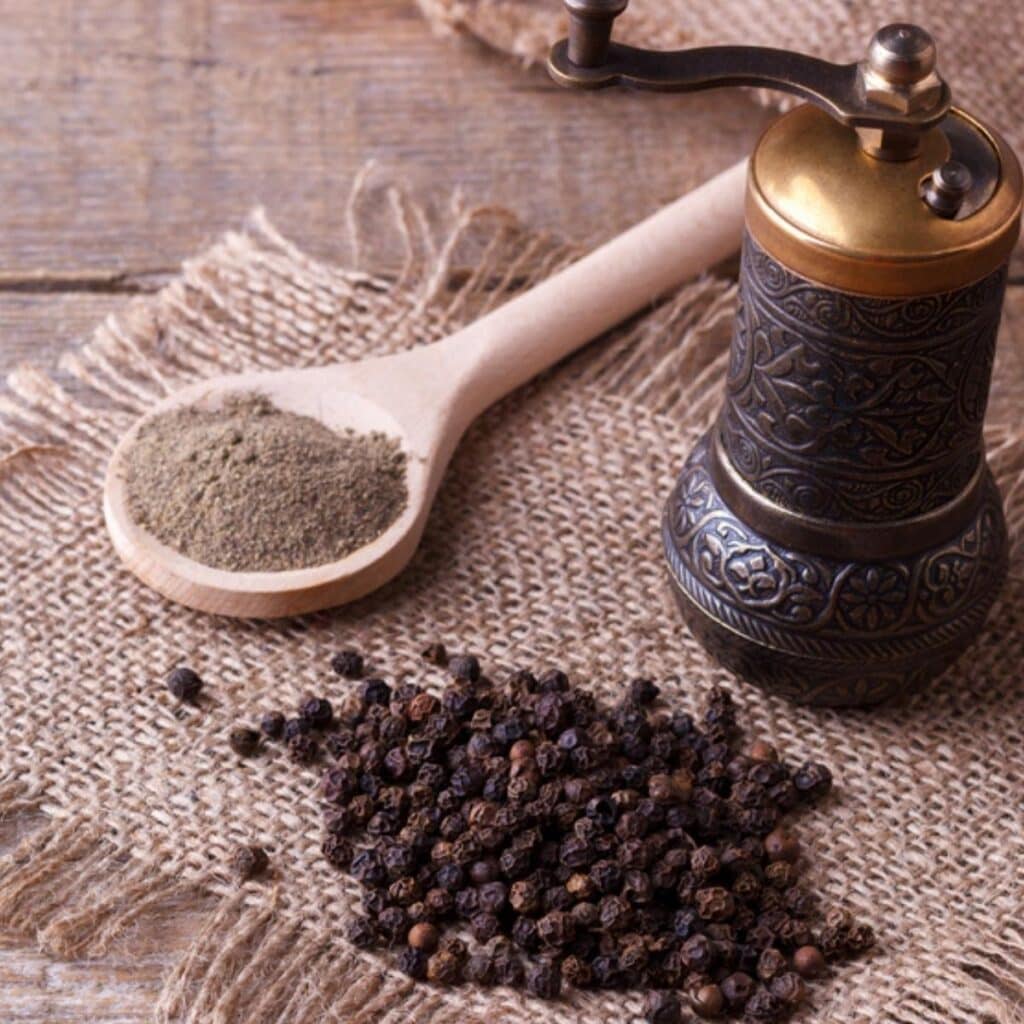
25. Black Pepper
Black pepper is a common condiment in most people’s kitchens. It’s that stuff you pour in the salt shaker’s twin.
Before it’s ground up into a fine powder, though, it comes in berry form.
Specifically, it’s the dried, ground berries of the Piper nigrum plant.
It has a distinct flavor and a smell strong enough to make you sneeze.
